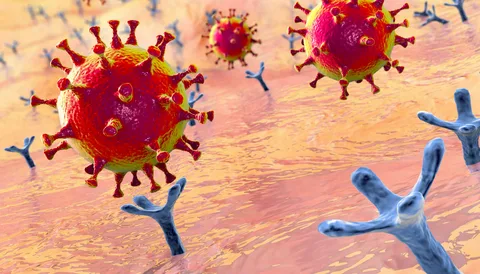A recent study conducted by a research team at the University of California, Riverside, has revealed that individuals who vape may be more susceptible to infection by SARS-CoV-2, the virus responsible for causing COVID-19. The study, published in the American Journal of Physiology, focused on the impact of e-liquids, commonly used in electronic cigarettes, on COVID-19 infection.
The researchers discovered that e-liquids containing ingredients such as propylene glycol, vegetable glycerin, and nicotine can enhance the susceptibility to COVID-19 through various mechanisms. Interestingly, the addition of benzoic acid to e-liquids was found to prevent the infection caused by these ingredients.
According to Rattapol Phandthong, the lead author of the research paper, individuals who vape aerosols produced from certain ingredients are at a higher risk of being infected by the virus. However, those vaping aerosols made from e-liquids with benzoic acid or an acidic pH showed similar viral susceptibility to non-vapers.
The researchers used a 3D tissue model of human bronchial epithelium to study the effects of JUUL and BLU electronic cigarette aerosols on SARS-CoV-2 infection. They observed an increase in the amount of ACE2, a host cell receptor for the virus, in tissues exposed to these aerosols. Additionally, they found increased activity of TMPRSS2, an enzyme crucial for the virus to infect cells, in tissues exposed to aerosols containing nicotine.
Professor Prue Talbot, advisor to Phandthong, emphasized the importance of caution among e-cigarette users, suggesting that quitting vaping may be the best course of action to reduce susceptibility to SARS-CoV-2. However, for those who continue vaping, using e-liquids with an acidic pH or benzoic acid may help prevent enhanced COVID-19 infection.
The researchers acknowledged the complexity of the relationship between e-cigarettes and SARS-CoV-2 susceptibility, attributing it to various e-liquid compositions and e-cigarette models. They hope that regulatory laws will be implemented on e-cigarette products based on their findings.
Furthermore, the researchers emphasized the potential risks associated with inhalation of benzoic acid and suggested that more research is needed in this area. They also highlighted the importance of their findings in improving the design of clinical trials related to tobacco products and SARS-CoV-2 infection.
The study underscores the potential impact of vaping on SARS-CoV-2 infection and the importance of considering these risks in public health initiatives. The researchers urge vapers to consider the implications of their findings and stress the potential complications associated with COVID-19 in individuals who vape.
*Note:
1. Source: Coherent Market Insights, Public sources, Desk research
2. We have leveraged AI tools to mine information and compile it



